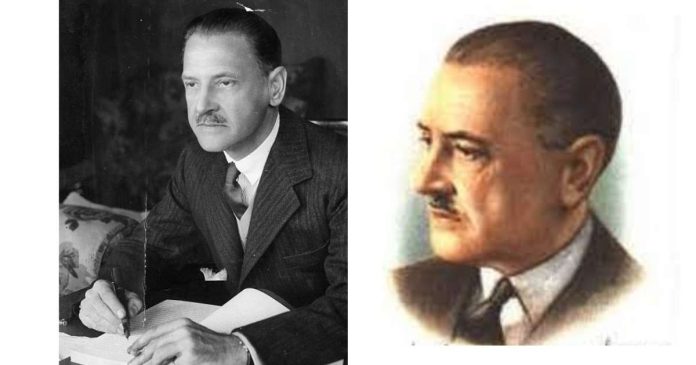“The Verger” is a short story written by W. Somerset Maugham, first published in 1929. It revolves around the life of a humble, somewhat unassuming church verger named Albert Edward, and the unexpected turn his life takes after being dismissed from his long-time position. Below is a summary of the story:
Summary of “The Verger”
Setting:
The story takes place in a small church, where the verger, Albert Edward, has served for over 16 years. The church is in a quiet, traditional English village, and Albert is a central part of its life.
Character Introduction:
Albert Edward is a man in his late 40s who has been the verger of the church for 16 years. He is described as a kind, competent, and reliable person who takes great pride in his work. As a verger, he is responsible for various duties, such as lighting the candles, keeping the church clean, and generally ensuring that everything is in order for the services. He has a great sense of duty and is very well-liked by the congregation.
However, Albert Edward has one notable flaw—he cannot read or write. This fact is something of an embarrassment to him, but he has learned to live with it. He also keeps this secret from others, and his literacy problems are only revealed when the story unfolds.
The Conflict:
One day, the vicar of the church, Reverend William Gresham, who is a highly educated and scholarly man, decides to have a talk with Albert. The reverend is concerned about Albert’s illiteracy and suggests that, for the sake of the church, Albert should learn to read and write. He believes that this is a necessary skill for the verger of a modern church.
Albert, who feels humiliated by the suggestion, politely listens to the vicar but is secretly worried. He knows that he will never be able to learn to read or write at his age, and he is not keen on the idea. Still, the vicar insists that Albert should learn. He gives him a little time to improve his literacy, and Albert is somewhat apprehensive.
The Twist:
Albert Edward is dismissed from his position as the church verger due to his inability to learn to read and write, despite his years of faithful service. The reverend, believing that literacy is an essential skill for the job, tells Albert that he can no longer keep his position.
Albert, devastated by the decision, is left without a job. He is uncertain about his future, as the verger position was all he knew. However, Albert doesn’t wallow in despair for long. He decides to start a small business selling cigars, an idea he gets after speaking to a friend. He uses his savings to rent a small shop in the village and begins selling cigars and cigarettes.
The Irony:
What follows is a surprising turn of events: Albert’s cigar business becomes extremely successful. In a short period, his business expands, and Albert becomes a wealthy and prosperous man. He eventually owns a chain of tobacco stores. Despite his illiteracy, Albert’s practical knowledge, work ethic, and street smarts lead him to great success.
In the final twist of irony, we learn that Albert Edward is later offered a knighthood for his entrepreneurial achievements. This, of course, stands in stark contrast to the Reverend’s earlier assumption that his illiteracy would limit him in life.
Themes:
- The Importance of Practical Knowledge:
The story highlights the value of practical skills over formal education. Albert, though illiterate, is able to succeed through hard work, perseverance, and intuition, proving that practical knowledge can sometimes be more valuable than academic learning. - Social Expectations and Class Structure:
Albert’s initial position as a church verger reflects the rigid social roles and expectations placed upon individuals in society. His dismissal due to his inability to read and write shows how society sometimes places undue emphasis on formal education, without recognizing the value of personal qualities and skills. - Irony and Fate:
The story is full of irony. The very quality that leads to Albert’s dismissal from the church—his illiteracy—turns out to be irrelevant in his pursuit of wealth and success. The reverend’s assumption that Albert’s illiteracy would limit him in life is proven completely wrong. - Human Resilience and Adaptability:
The story also explores the resilience of the human spirit. Albert does not let the loss of his position as verger define him or lead him to despair. Instead, he adapts to the change and finds a new path that ultimately leads to success.
Conclusion:
“The Verger” is a story that plays with themes of societal expectations, the value of education, and the unpredictability of life. It highlights how a person can achieve great success in unexpected ways and that formal education is not the only path to success in life. Through Albert’s journey, the story also suggests that personal qualities like determination, adaptability, and resilience are often more important than formal qualifications.


